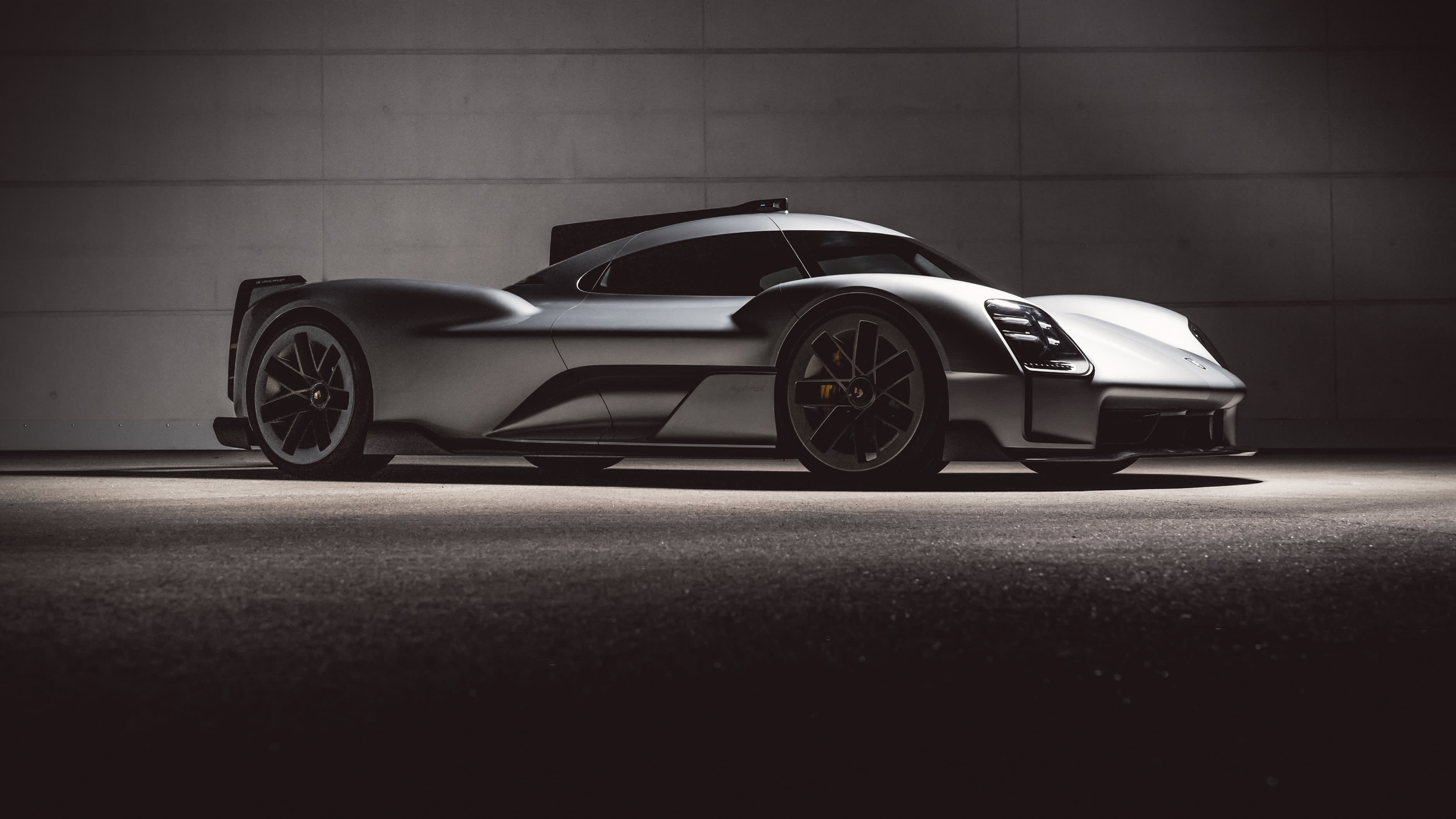
Every year, automakers unveil concept cars that are meant to offer a potential glimpse of the future in the form of new technology or a distinct stylistic direction. But not all concept cars end up seeing the light of day, as not every idea goes from concept to reality.
Porsche recently pulled back the veil on three such conceptual designs created by the German luxury automaker between 2005 and 2019, but never before revealed to the public. Porsche chairman Oliver Blume said in a statement that such concept designs, whether they reach the public or not, “provide the pool of ideas for the Porsche design of tomorrow.”
The concept cars now reaching the public for the first time include an all-electric Porsche van and the Porsche 919 Street, a hypothetical version of the 24 Hours of Le Mans-winning race car that would be driven by amateurs.
The designs for those cars, as well as an updated version of the 1950’s Porsche Spyder, and a dozen other design studies, are all featured in a new book, titled “Porsche Unseen,” which became available in November. The designs will also be on display at the Porsche Museum in Stuttgart, Germany, starting in 2021.
To launch the book, Porsche released images of models for three of the concept vehicles, the Porsche 919 Street, the Porsche Vision Spyder and the electric van concept, called the “Renndienst.”
Porsche 919 Street
Porsche’s 919 Street concept car.
Source: Porsche
The “Street” is based on the design and technology of Porsche’s 919 Hybrid, which won the legendary 24 Hours of Le Mans sports car race three years in a row, from 2015 to 2017. This concept would promise to “make the exhilarating driving experience of the [Le Mans] race car available to amateur drivers,” Porsche said of the Street concept design in a press release.
A rear view of the Porsche 919 Street concept car.
Source: Porsche
The company released images of a highly detailed clay model of the concept design that shows off dimensions and a wheelbase that are “identical” to the racetrack version of the 919, with a wraparound windshield and a central fin on the back of the car. The Street concept also boasted the same 900-horsepower drivetrain as the 919 Hybrid.
Porsche vision “Renndienst”
Porsche’s “Renndienst” electric van concept.
Source: Porsche
Had the “family-friendly” electric van concept actually made it to the production stage, it would have marked the biggest departure from tradition for Porsche, which is best known for its luxury sports cars.
While Porsche did not reveal interior images of the Renndienst, the company notes that the van would have room for up to six people, with the driver sitting in a central seat at the front of the cabin. The all-electric engine and drive technology also would have been located on the underside of the van, opening up more space on the inside so that “passengers can enjoy an unexpectedly generous space and travel experience combined with Porsche-like flair,” the company said.
In one photo of the concept model, Porsche shows the electric van next to a 1960s version of the Volkswagen bus, which inspired the concept design.
Porsche’s electric van concept featured next to a Volkswagen bus.
Source: Porsche
Porsche Vision Spyder
The Porsche Vision Spyder concept car from “Porsche Unseen.”
Source: Porsche
This sports car concept “clearly calls to mind the Porsche 550-1500 RS Spyder from 1954,” Porsche said in November, referring to the compact, two-door sports car the company built for racing in the mid-1950s (and a version of which was driven by actor James Dean in his fatal 1955 accident).
Images of a model for the Vision Spyder concept show modern touches that Porsche added to the throwback sports car, such as the rear roll bar for improved cornering and the single-bar tail-light that is a common feature of modern Porsche cars.
The Porsche Vision Spyder concept car from “Porsche Unseen.”
Source: Porsche




